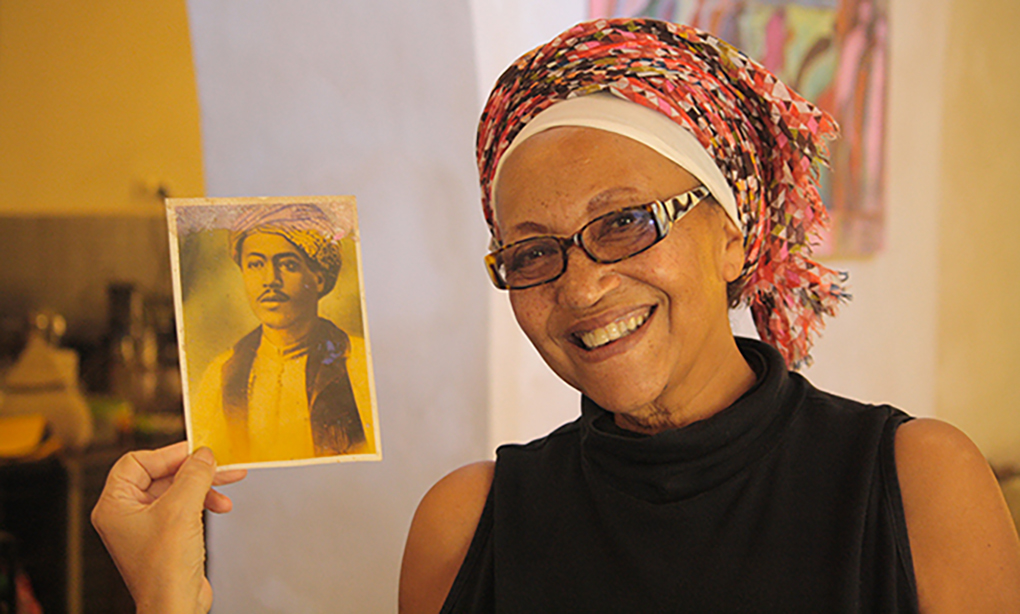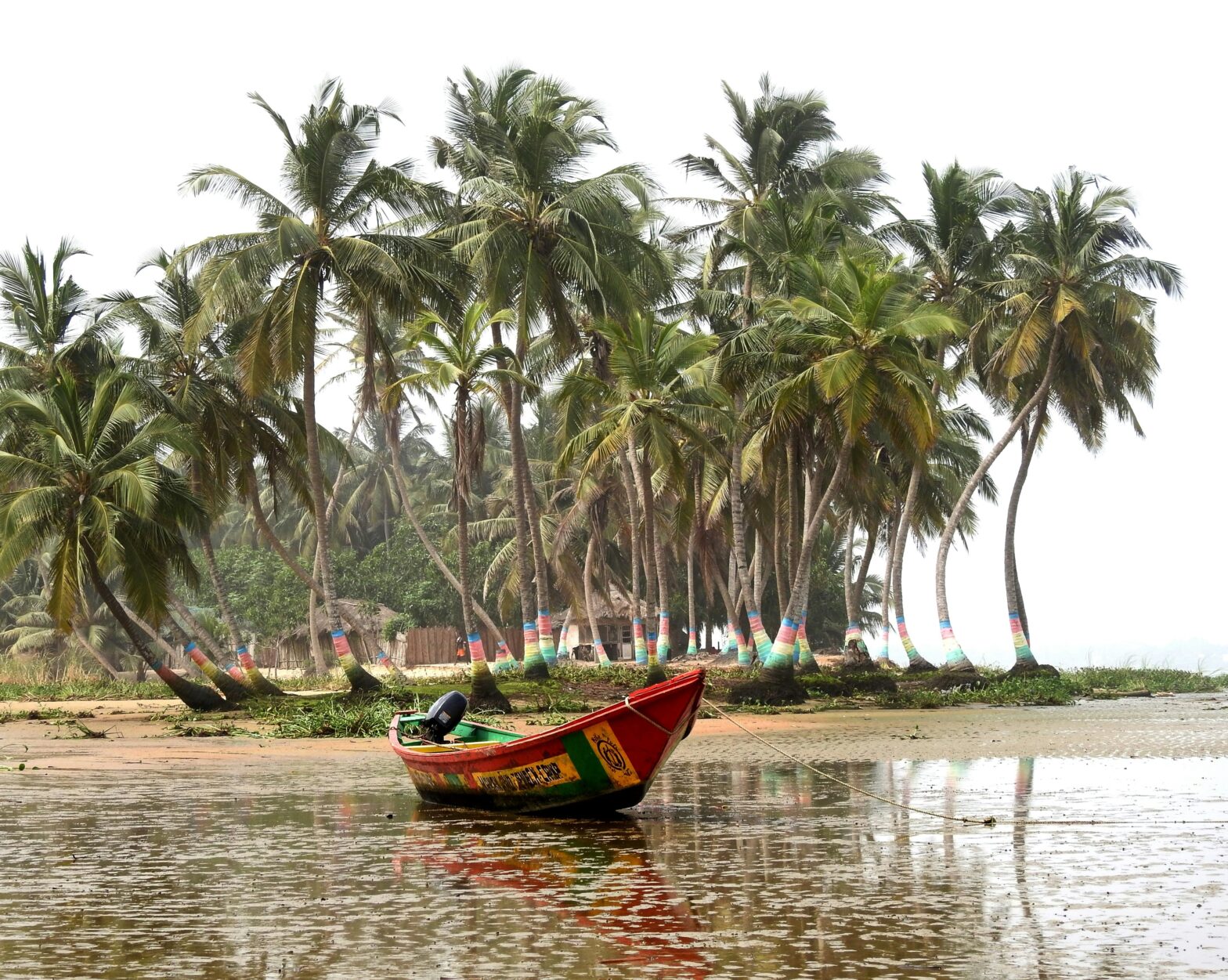Meet Marie-Caroline Camara, the owner and manager of the Au Fil Du Fleuve guest house in Saint-Louis, Senegal. A Métis, born to a French mother and Senegalese father, she previously lived in the Paris area, working in the marketing field. However, she soon began looking to acquire a house in her father’s town.
“I wanted to involve myself more in the country to ensure my kids would not forget their African roots and could be motivated to settle there in the future, or at least recreate links with their family relatives,” said Marie-Caroline.
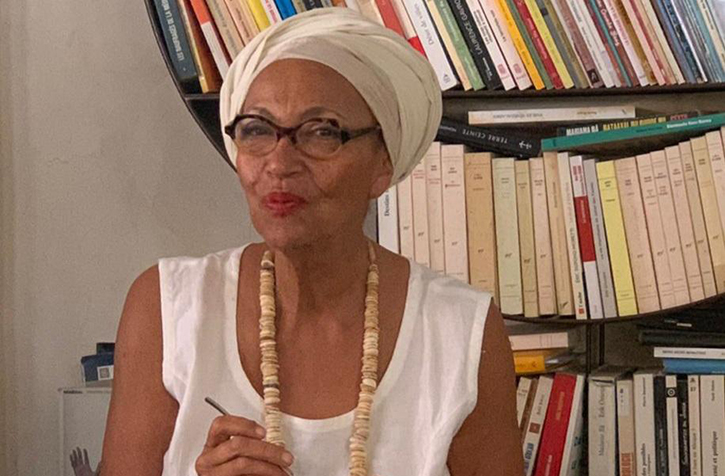
With the island of Saint-Louis being a UNESCO World Heritage Site on the Senegal River, Marie-Caroline thought it would be a great idea to restore an old historical building and contribute to the preservation of the memory of the town, as well as to its economic development. She found the perfect building and began to renovate it in accordance with patrimony preservation rules.
Au Fil Du Fleuve, French for “along the river,” officially opened in 2013. An intimate guest house of four rooms and suites located in the historical quarter of the island, the building was initially a warehouse for Arabic gum. The house is decorated with furnishings designed by Marie-Caroline and produced 100% by local craftsmen.
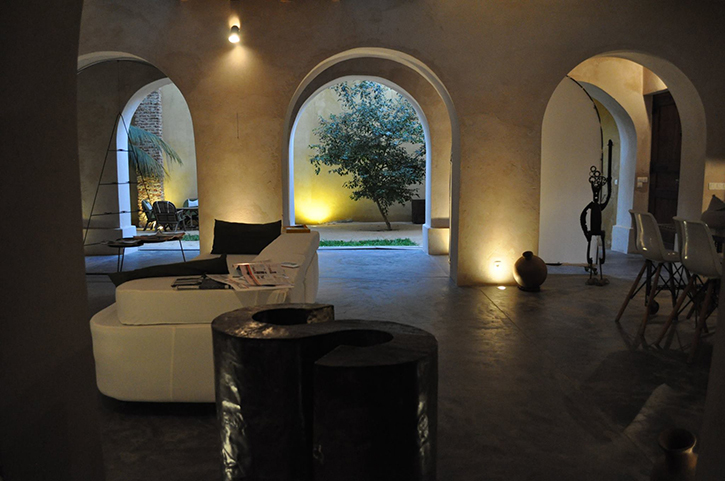
“It is our pleasure to set up regular exhibits of local contemporary African art, and in the commune area, our guests also have access to a library dedicated to African literature. Our specialty is the promotion of local foods, so we offer a dedicated breakfast which includes many African elements, and traditional recipes at dinner. A few years ago, we had the opportunity to participate in the CNN show Parts Unknown with Anthony Bourdain, in an episode dedicated to Senegal.”
Au Fil Du Fleuve also offers cooking courses, which include shopping for ingredients in the market and preparing and eating the food together. Among the recipes is well-known ceebu jën, a popular Senegalese dish originating in Saint-Louis which just this month was added to UNESCO’s Intangible Cultural Heritage list.
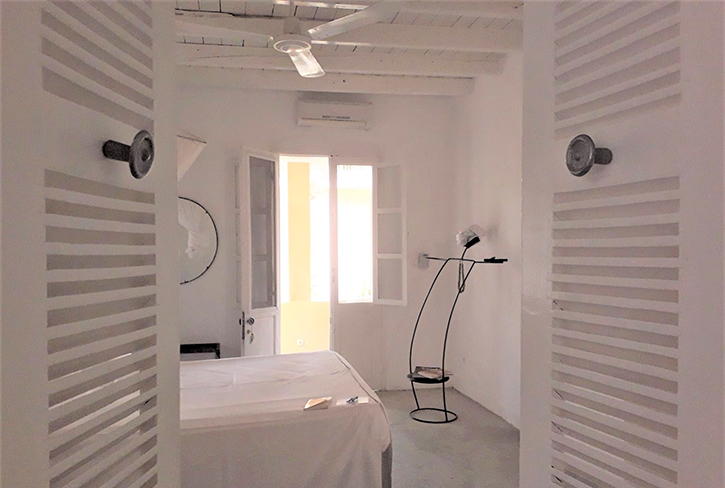
“Saint-Louis is an amazing historical town that seduces photographers, art lovers, and artists. Numerous are the art galleries, museums, antique shops, and there are always concerts going on for music fans, as well as various cultural events dedicated to cinema or contemporary dance. One of the key events held here is the annual International Jazz Festival, the largest in Africa.”
The island’s natural landscapes, including the river area, Fulani villages, and Djoudj National Bird Sanctuary, are also points of great interest. Visitors can also enjoy exploring the fishermen’s quarter and its colorful pirogues, Senegal Valley, and the town of Podor.
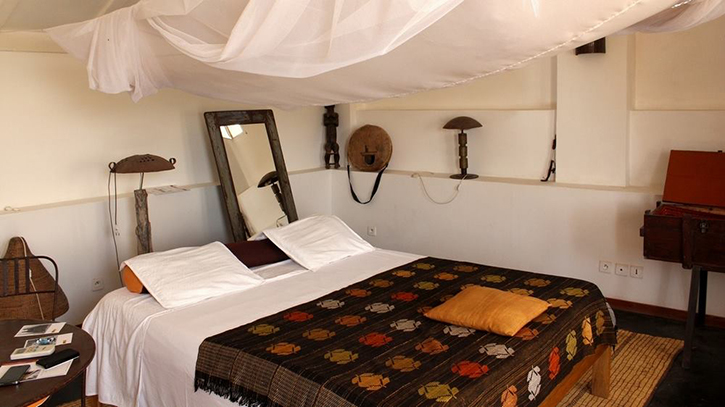
One might visit Saint-Louis as part of a Senegal tour including larger cities such as Dakar, the country’s capital. Home to great beaches and surfing hotspots, Dakar has its own fascinating cultural and entrepreneurial life that Marie-Caroline says depicts a great example of an African city on the rise.
“Don’t stop there without visiting the new Museum of Black Civilizations, the African Renaissance Monument, and the Village Des Arts. While you’re there, why not enjoy some live concerts or soccer competitions for a truly immersive experience?”
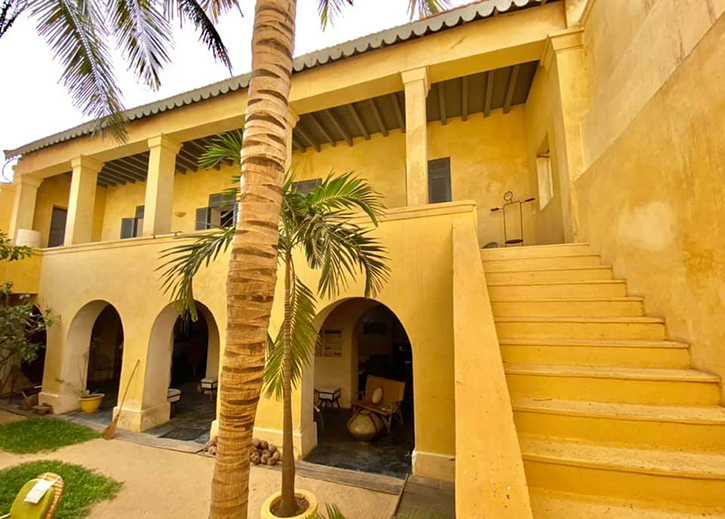
Senegal is known for having some of the most delicious food in West Africa, and for its hospitable spirit known as “teranga.” The country offers various types of hotels to accommodate a variety of travelers and preferences, from simple family-friendly camps and lodges to luxury resorts and local-owned guest houses such as Au Fil Du Fleuve, that can guarantee a warm, welcoming, and personalized experience.
Marie-Caroline believes visiting a secondary town like Saint-Louis is a great way to fully apprehend the daily realities of a developing country.
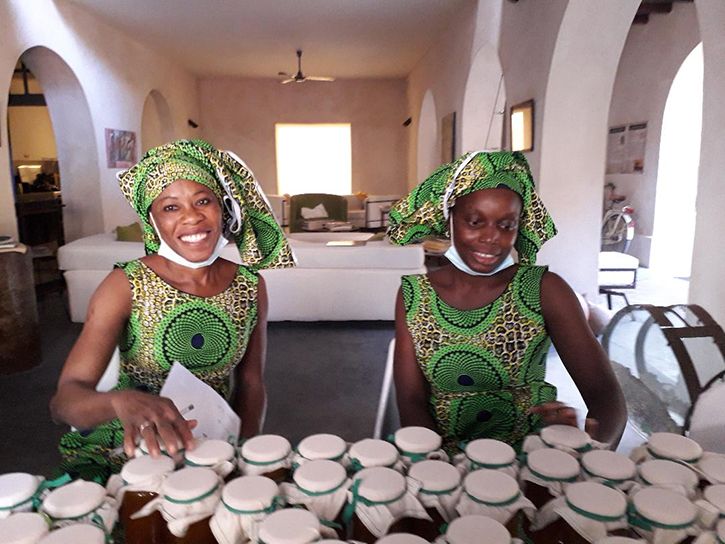
“In the smaller Senegalese territories you can discover various traditional and authentic cultures, local villages, remarkable architectural sites, and various natural landscapes, ranging from deserts to the mangroves of Sine Saloum to tropical forests.”
For more information, visit www.fildufleuve.com.
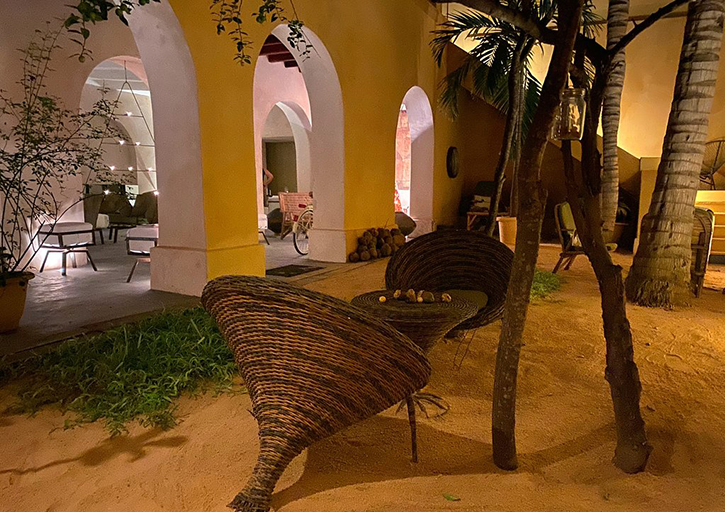
Related: Did You Know Wrestling Is The National Sport In Senegal?
